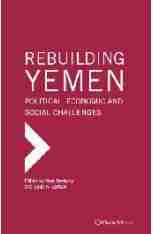Research Papers
Number:
Author:
The Iranian political scene has been deeply affected by the sudden passing away of Akbar Hashemi Rafsanjani, the stalwart political figure at the centre of the Islamic Republic's politics since early 1979. His death deprives the political elite of a figure who, while not universally revered, was instrumental in the stabilization and strengthening of the post-revolutionary state order and in solving frequent intra-elite crises. This article will provide an in-depth analysis of Rafsanjani's career, his core beliefs and strategies. In addition, it provides a description of the potential trajec
Number:
Author:
(This paper is based on a speech given by HES Dr. Mohammad Sabah Al-Salem Al-Sabah, the former deputy prime minister and the former minister of foreign affairs of Kuwait, at the German-Arab Friendship Association in Berlin, Germany on Thursday, 11/1/2017)
Hundreds of thousands of people have been killed in the Middle East while millions of refugees now roam the world. Terrorism has reached its pinnacle, and metastasised into the so called Da’esh. Key states in the region are now fighting
Number:
Author:
Ahmad al-Qushashi was the most dominant Sufi scholar in seventeenth-century Ottoman Hijaz. He is depicted as merciful to other people in many biographical sources and writings, and his support for coffee culture was predicated on his concern for the economic welfare of the inhabitants of the Hijaz, who benefited from the production of coffee. His role in spreading knowledge as far as Indonesia cannot be ignored. Most later renowned Sufis and hadith scholars, to whom some modern historians refer as the proponents of “Islamic revival and reform,” transmitted certificates from Ibrahim al-Kurani (d. 1690) that originated in al-Qushashi’s
Number:
Author: Makio Yamada
The visit of Deputy Crown Prince Mohammed bin Salman to Tokyo in August and September 2016 resulted in the beginning of the reconfiguration of Saudi–Japanese economic cooperation into one that responds to the goals of Vision 2030 and the National Transformation Program 2020. In recent years, the two states have been keen on transforming their energybased bilateral relationship into what they have referred to as a ‘strategic’ and ‘multi-layered’ relationship. Today, as Saudi Arabia accelerates its efforts to achieve a transition to a post-oil economy, they have begun to cooperate on the creation of more diverse economic ties between
Number:
Author:
This study investigates minority issues in Syria through the observation of their numbers and geographic locations as well as their economic, political, and social status before and after the outbreak of the Syrian revolution in March 2013, in light of the Syrian authorities’ unwritten proscription of minorities imposed since the country’s independence, and their reluctance to make relevant data accessible to researchers. The research focuses on the impact of the Syrian crisis on minorities both in terms of population presence and political status, as minorities become key players in
Number:
Author:
From the Almoravid’s invasion of Ghana in 1062 until the Moroccan conquest of the Songhay Empire in 1591 that, allegedly, was not “sufficiently Muslim,” Africa south of the Sahara has been exposed to a “purification of Islam” project. This project took two forms, one was the quietist, intellectually driven reformism (for instance, the 15th century Moroccan al- Maghili and 16th century Malian Ahmad Baba al-Timbukti d. 1627). The second was militant Islamism, for which the 19th century, better known as the “Jihadist period,” was particularly significant in Sudanic

Number:
Author:
The King Faisal Center for Research and Islamic Studies published a book entitled, "Rebuilding Yemen: Political, Economic, and Social Challenges." The book was edited by two researchers: Dr. Noel Brehony, Chairman of the British-Yemeni Society, and Dr. Saud al-Sarhan, Director of Research at the King Faisal Center. Its chapters were selected from papers presented at the annual conference of the Gulf Research Centre, which took place at Cambridge University from August 24-28, 2014. The seven chapters provide background information and tackle a number of issues including: the historical and political backgorund of Yemen, Yemen after 1994,&nbs
Number:
Author:
This article will provide an overview of the reactions which surrounded the publication, in late August 2016, of an audio recording containing a conversation between Ayatollah Montazeri, then successor-in-waiting to Ayatollah Ruhollah Khomeini, and senior officials involved in the execution of thousands of political prisoners in Iranian jails. It will gauge the reaction of various political forces to the publication of the recording, as well as provide statistics pointing to popular interest in it, and assess what political fallout is to be expected from the episode.
